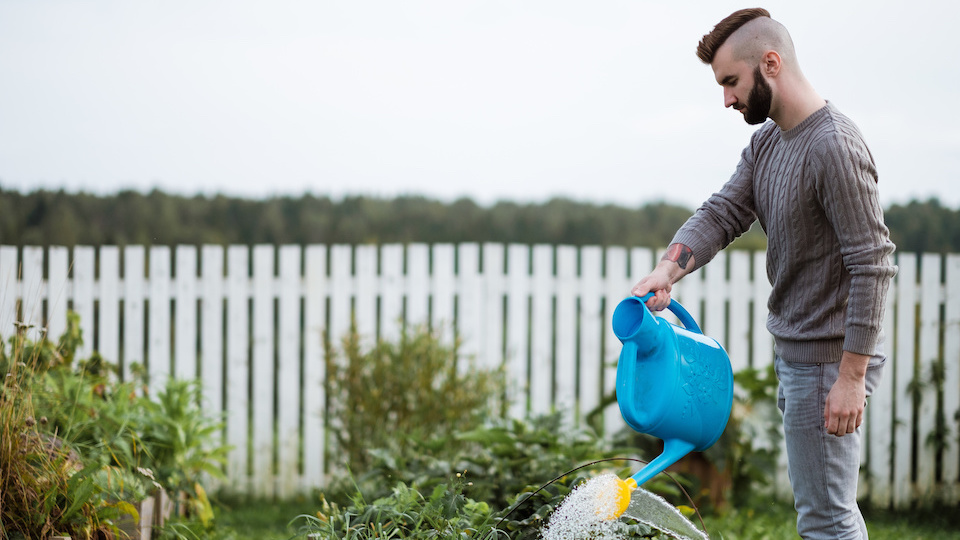To some, the words urban and homestead just don’t seem to mix. However, more and more people are realizing their lifelong dream of becoming more self-sufficient without actually having to quit their job and move to the country. In fact, it is quite possible and popular these days to create a homestead within city limits on a relatively small piece of urban land. This is good news to those who can’t afford 50 acres of land but still want to catch the homesteading wave.
Defining homesteading
What exactly is homesteading? Although there are variations, homesteading mostly means this:
- A desire to remove yourself from stuff – to buy less but have more.
- A desire to learn how to make things by hand and from scratch.
- A desire to respect and keep the land and everything on it.
- A desire to live a sustainable lifestyle and buy locally.
- A desire to use and develop new and useful skills that can be passed down to others.
Yes, you can homestead on a small piece of land
Urban homesteading is just that…it is urban. Most people who homestead in urban environments do so on ¼ acre or less land. Although this requires planning and care, it can be done quite successfully.
Want to homestead, do this first
Here are a few tips to make your transition to an urban homestead a smooth one.
- Check with your homeowner’s association (HOA) – Whatever you do, don’t begin your urban homestead until you are sure about the rules in your neighborhood for keeping animals, etc.
- Check with your local city ordinances – You will also need to check your local city ordinances regarding homesteading. Many places in the country are becoming more supportive of sustainability efforts, but it is still a good idea to check so that you know the rules.
- Be sensitive to your neighbors – Whether you have neighbors that also homestead or not, it is courteous to check with them before you begin transforming your property. Let them know that you may keep some small livestock, grow a garden, collect rainwater, etc. Whatever your plans may be, it is always best to be sensitive to the people around you.
Ready, set, homestead
Once you have received a green light from your HOA, city, and neighbors, it is time to get started. Here are some tips to help you be a homesteading success:
- Embrace minimalism – How much do you really need to survive – how many things do you have in your home that contribute to your survival and how many that are sitting around collecting dust? Chances are, you have more items collecting dust than those that are useful. Go on a purge and reduce the amount of stuff that you have. Get rid of clutter. This does not mean you have to purge everything that means something to you – what it means is that you need to consider functionality first and get rid of anything else that does not spark a deep-rooted pure joy in your heart. If this is difficult for you, ask a friend to help. Have a yard sale and donate what doesn’t sell. You can use your proceeds from your sale to get your homestead started.
- Withdraw from consumerism – It’s everywhere, the urge to shop and spend money on things that are not necessary. Getting yourself into the right mindset is imperative for homesteading success. Focus on just what you need and stay out of the stores as much as possible.
- Stop watching television – If you are a homesteader at heart, chances are you don’t have or watch television much. However, if you do, it is time to trade in your TV for chickens. Corporations spend trillions of dollars every year corrupting the minds of Americans – convincing us that we need things we don’t. To stay on the homesteading course, it is best to remove this type of brainwashing.
- Learn, learn, learn – If you have friends who homestead or if there is a homesteading group near you, join, and ask lots of questions. Check out books from your local library or browse the Internet and fill your head with as much practical knowledge as you can. Seek out mentors and hang with them for as long as you can until you acquire all the new (old) skills you will need to be successful. Learn how to sew and do other handwork like crochet and knitting. Learn how to grow, harvest, and store food from a garden. Learn how to tend bees, goats, and chickens. Learn how to make bread from scratch, a skill your family will welcome!
- Be a good steward of the land – One of the primary principles of homesteading has to do with caring for the land/water and everything on the land and in the water. Reduce, reuse, repurpose, and recycle as much as you can. Stop using plastic and start buying in bulk. Learn how to make your own non-toxic cleaners and personal care products.
- Shop locally – When you do shop, do so locally. Support your local farmer’s market, local growers, and other homesteaders. Visit thrift stores when you can to save resources and reduce your carbon footprint.
- Share your knowledge – As you grow in your homesteading knowledge be sure to share it with others. If you don’t already have a local urban homesteading group, consider starting one where knowledge and resources can be shared. Start a blog or share an article in your local newspaper.
Happy homesteading!
-Susan Patterson




